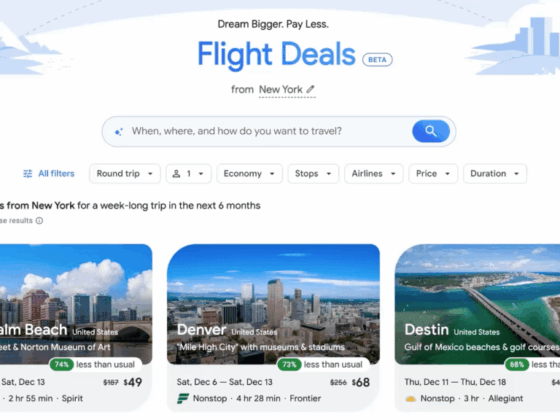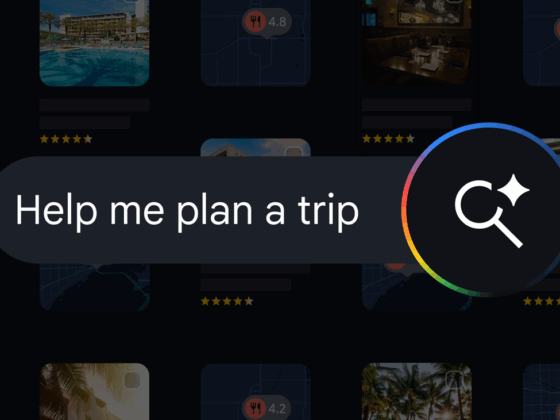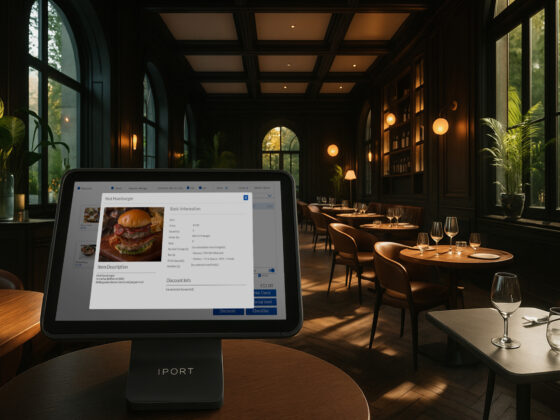
Anna is planning a business trip to Tokyo. Eager to get the best recs for the city, she whips out her smartphone and finds a hotel touting everything she wants. She books her stay within minutes. Her dream stay wishlist was made possible by AI — and behind that magic is guest segmentation. Large Language Models (LLMs) and other AI tools can now segment data (like intent, behaviors, or loyalty preferences) and instantly spin up personalized recommendations that feel one-to-one, not one-to-many.
That’s the new normal — and that’s your competition. What feels like hyper-personalized communication is actually segmentation that’s executed at scale through AI. LLMs are enabling hotels to create segment-specific messages so seamless that they read as if they were written for just one guest.
All of this means guest segmentation is undergoing a seismic shift, and you’re an eyewitness. You’re also a witness to the hoteliers surviving and adapting to the AI challenge and moving past generic broad-brush marketing. Hotels are embracing AI, evolving privacy regulations, and voice-enabled discovery to fine-tune their guest communication. And you can be one of those hoteliers, too. It just starts with understanding each guest on a deeper level.
In our modern times, guests don’t want less personalization — they want even more. Your hotel can rise up to meet and exceed that expectation by leaning into segmentation strategies today that will help you stay ahead of tomorrow’s curve.
Top 10 trends in guest segmentation for 2025
The guest segmentation shift we’re talking about is being redefined on both micro and macro marketing levels — spanning a variety of communication channels. Here’s a look at some of the biggest emerging trends in hotel guest segmentation.
1. Balancing privacy and personalization takes priority
Here’s a non-negotiable: Respect your guests’ data. Personalization doesn’t come with a privacy cost, especially if you’re GDPR compliant and following CPRA.
Smart hotels are using behavioral cues (like cart abandonment or app usage) to segment guests without collecting sensitive personal data. They’re also leaning into opt-in strategies that empower guests to share preferences, such as:
- Booking preferences surveys
- Loyalty program personalization
- Dynamic consent prompts at check-in
These approaches build trust while still feeding your guest segmentation engine.
2. LLMs are powering segment-specific messaging at scale
Take a pick from any LLM: ChatGPT, Claude, Gemini, etc. The one thing they all have in common? They’re fast. And they learn about you — really fast. So delivering personalized, segment-specific messages in a preferred tone and targeted toward a specific location and guest intent is something at which LLMs will always excel.
LLMs take manual labor out of the picture. And that means small teams finally have the free time they need to focus on guests and deliver high-quality messaging across dozens of segment personas. And the best part is they don’t need to write each message themselves — simple human oversight is all that’s needed. LLMs may be quick to boost productivity, but they aren’t perfect, so all messages should be proofread to ensure they’re contextually appropriate.
3. First-party data becomes the new standard
Cookies are so last year. Third-party cookies are phasing out, and first-party data is in. The future of guest segmentation will be built on the foundation of first-party data — a data type your hotel owns instead of relying on external data sources.
And if first-party data is the foundation, a Customer Data Platform (CDP) is the home. Housing aggregate guest behavior, preferences, and transaction history into unified profiles is essential for making the most out of email segmentation and beyond. Without this infrastructure, hotels risk missing out on key personalization capabilities.
4. Contextual personalization replaces retargeting
Context matters — always. Contextual personalization changes based on who you’re speaking to, and that’s going to vary by guest. Real-time behaviors, locations, and intent inform smart segmentation and consider when, why, and how guests are engaging.
By prioritizing context, you go from retargeting a guest with no change in your messaging approach to providing in-the-moment experiences that convert better and feel more relevant. Think about adaptive offers that change based on booking time, search behavior, or travel patterns from different market segments.
5. Voice and natural language search reshape discovery
Be voice-ready. Guests not only talk on their phones, they also talk to them — telling their devices, “Find a beachfront hotel in Maui with yoga classes.” So search results surface properties from that voice query, you want to make sure your hotel is one of them.
Hotels need to rethink their hotel market segmentation strategies when it comes to search optimization for conversational queries. That means using natural language in your content, adapting offers to spoken intent, and reworking your segmentation logic to anticipate these search behaviors.
6. Real-time segment updates occur via machine learning
Guest segments don’t operate on a “set-it-and-forget-it” pattern because they’re fluid. Every time your guest interacts, their details change. Booked a family suite? Your segment shifts. Opened five spa emails? Your interest score updates.
AI tools can now dynamically classify and reclassify guests based on real-time behaviors. This kind of market segmentation in the hotel industry helps marketers stay relevant while letting machines handle the heavy lifting of updates — something impossible to do manually at scale.
7. Hyper-specific segments drive campaign ROI
Every time you’re asked to “be specific,” it’s for a good reason. In hospitality, generic guest segments just don’t work. The most successful hotels in 2025 are leaning into microsegmentation to identify highly specific clusters based on unique behaviors or needs.
For example, a hotel might target:
- Single business travelers who stay five nights or more
- Couples who book spa packages within 24 hours of check-in
- Return guests who refer friends
If you think you can’t get more specific, you can. Microsegmentation delivers higher ROI and engagement because it’s hyper-relevant to each guest. Nothing is overlooked.
8. Integrating segmentation into guest service drives results
Segmentation is an in-person practice, too. The best hotel guest segmentation strategies extend beyond hotel email marketing to on-property guest service. By sharing segment data with the front desk, concierge, or F&B staff, hotels can turn insights into action.
Imagine a guest in your wellness microsegment being offered a room upgrade next to the spa before they even ask. This is where hotel industry segments come to life in real time.
9. Predictive segmentation gets smarter
Need a prediction? Go to AI. Predictive segmentation enables hotels to forecast behavior and trigger next-best-action marketing.
AI has the capability to flag a guest who’s likely to cancel and prompt them with an offer to keep their booking — saving you from lost revenue. Predictive guest segmentation is still new, but it pays to have it on your radar as these tools mature.
10. Unified guest profiles across systems is crucial
Guest profiles are like precious gems — polished and safely stored in your CDP. It’s how you keep building your treasure chest of precious gems. No matter where or how a guest interacts, your profiles are updated and primed to execute your segmentation strategy. This enables fluid hotel market segments and seamless personalization across all touchpoints.
Leaving broad-brush marketing behind: What to do now
If you’re feeling overwhelmed right now, please know that’s perfectly okay and completely understandable. Virtually every hotelier is in the same position you are — compelled to act because of the rapid changes to the marketing landscape.
Many hoteliers are still in the early stages of transitioning from traditional to AI-powered hotel segmentation. What matters most is getting started.
Here are four things you can do now:
- Audit your current segments. Are they based on behaviors or demographics? Could they be more precise? Start with our guide on microsegmentation.
- Test one new behavior-based segment. For example, create a segment for guests who’ve booked spa treatments twice and send them a VIP preview email.
- Eliminate choice friction. Give guests fewer but better-curated options. It improves conversions and segmentation clarity.
- Align systems. Start integrating your voice data and CRM data for a clearer view of hotel guest segmentation patterns.
Remember, segmentation doesn’t have to be complex. It just has to be focused.
Conclusion
This is your year to take back control over your marketing and create a competitive advantage that will have even AI personal assistants shaking in their boots. AI, voice search, and privacy are your catalysts of change — pushing you to prepare for a new era of personalized hospitality with guest segmentation.
Say goodbye to broad-brush marketing and hello to meaningful revenue-driving connections by leveraging first-party data and the right hotel technology to make segmentation simple.
If you want a jumping-off point to get started on your guest segmentation, start your journey with our Direct Booking Mastery Certification for a full course on guest segmentation strategies.
About Revinate
Revinate is a direct booking platform that leads the hospitality industry in driving direct revenue and increased profitability.
Our products and our people combine to give hoteliers the superpowers they need to crush their goals. With Revinate, hoteliers shift share away from OTAs and drive tangible results across an individual property or a portfolio. Our industry-leading, AI-powered customer data platform collects, unifies, and synthesizes data to give hoteliers a foundational advantage.
Hoteliers gain critical intelligence — guest lifetime spend, stay preferences, ancillary revenue, and more. With Revinate’s Rich Guest Profiles™ data, hoteliers don’t need to guess who their most profitable guests are or struggle to drive conversions across email, voice, messaging, and digital channels.
Revinate’s direct booking platform and omnichannel communication technology powers 950+ million Rich Guest Profiles across 12,500+ hotels to drive over $17.2 billion in direct revenue.
Media Team
Media team | Revinate
+1 415 671 4703
Revinate, Inc.







